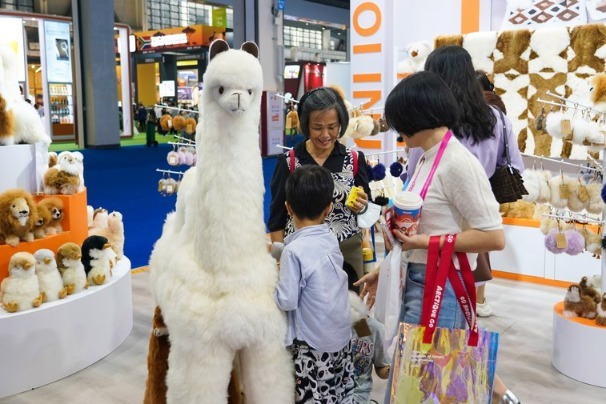Guangdong sees closer trade relations with HK


Guangdong province's foreign trade volume with the Hong Kong Special Administrative Region grew at an average year-on-year 6.1 percent rate over the previous 25 years, playing a role in helping maintain the SAR's stability and prosperity.
According to statistics released by Guangdong Customs on Wednesday, Guangdong's import and export volume with Hong Kong has significantly increased from 279.85 billion yuan ($43.39 billion) in 1997 to 1.17 trillion yuan in 2021.
Zhang Jingsong, director-general of the Guangdong Provincial Bureau of Commerce, said trade between Guangdong and Hong Kong would continue to maintain momentum in the months to come, as the provincial government has given the green light to establish the China (Guangdong) Pilot Free Trade Zone Interactive Development Zones in 13 prefecture-level cities in the province, one of the major production bases in the world.
Guangdong now has three pilot FTZ areas in the cities of Guangzhou's Nansha, Shenzhen's Qianhai and Zhuhai's Hengqin.
"The provincial government will further promote investment and trade facilitation in the interactive development zones and further expand cooperation between Guangdong, Hong Kong and Macao," Zhang said at a news conference in Guangzhou on Tuesday.
The province's free trade zones have greatly contributed to promoting high-quality development of the Guangdong-Hong Kong-Macao Greater Bay Area, playing a role in comprehensively deepening reform and opening-up in previous years, he said.
According to Zhang, the FTZ areas have generated tax revenue valued at more than 100 billion yuan, foreign trade volume of about 2 trillion yuan and attracted actual offshore investment worth more than 55 billion yuan since their establishment in 2015.
Last year, Guangdong's foreign trade volume with Hong Kong reached four times more than the figure recorded in 1997 when Hong Kong returned to the motherland, Guangdong Customs said in a statement.
Meanwhile, the structure of Guangdong's export commodities to Hong Kong has been optimized over the previous 25 years, with the export of high-tech products to Hong Kong increasing significantly, said the statement.
Guangdong's exports to Hong Kong have changed from traditional labor-intensive products, including clothing, shoes and toys, to electromechanical products with relatively high added value thanks to the province's rapid development of the electronic manufacturing industry over the previous decades, the statement said.
From 1997 to 2021, the export scale of Guangdong's labor-intensive products to Hong Kong has decreased by 56.8 percent and their proportion in Guangdong's exports to Hong Kong has decreased from 47.8 percent in 1997 to only 4.4 percent in 2021.
Guangdong's export of mechanical and electrical products to Hong Kong, which accounted for 30.1 percent of the province's total exports to Hong Kong in 1997, grew at an annual average growth rate of 11.2 percent over the same period to reach 82.1 percent in 2021.
Guangdong's new and high-tech products exported to Hong Kong witnessed an annual average growth rate of 17.2 percent between 1997 and 2021, and the proportion increased from 6.6 percent in 1997 to last year's 63 percent.
Meanwhile, its export of agricultural products to Hong Kong increased from 13.98 billion yuan in 1997 to 28.11 billion yuan in 2021, with an average annual growth rate of 3 percent.




